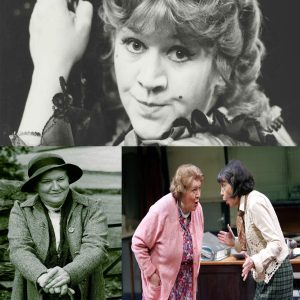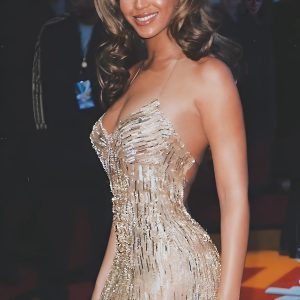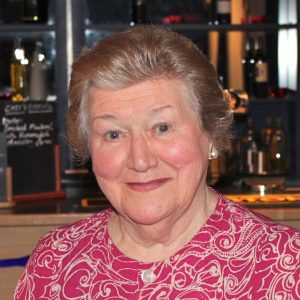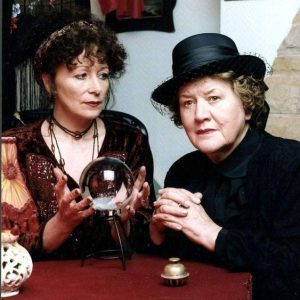The Double Life of Patricia Routledge: Stage Grandeur, Private Passion, and the Heart of a National Treasure
When Patricia Routledge strides onto the stage of the Savoy Theatre, London holds its breath. Clad in a regal tea gown adorned with dramatic swathes of purple silk and topped with a hat that could intimidate a raven, she becomes Lady Bracknell—Oscar Wilde’s iconic symbol of Victorian propriety and social tyranny. The audience quivers in anticipation of that immortal line: “A HAND-bag?” The syllables land like musical notes, precise and unforgettable. It’s a performance both operatic and hilarious, delivered by one of Britain’s most formidable and enigmatic actresses.
Now 71, Routledge remains a towering figure in British entertainment. But behind the theatre mask lies a woman shaped as much by passion and loss as by the applause of a packed house.
A Lifetime in Performance, Anchored in Discipline
Our interview takes place in a sun-drenched suite at the Savoy Hotel. Routledge arrives not a minute late. “She’s punctual to the second,” her publicist warned, and they weren’t exaggerating. The actress, gracious yet commanding, glides into the room with the bearing of someone born to be watched.
She gestures grandly at the Thames skyline. “I never tire of this view,” she proclaims. Theatrical, yes—but never insincere. That same clarity of voice, trained not just in drama schools but in the strictures of early musical instruction, continues to serve her on stage.
Her voice was once her first artistic instrument. Trained in her youth to sing, Routledge seriously considered a career in music. “I had a voice—I had an instrument,” she says, recalling Saturday sessions with her beloved teacher Miss Sleigh. That early training informs her performance in The Importance of Being Earnest. “You’re absolutely right to call it operatic,” she says with a rare flash of pride. “You have to honour Wilde for the music in his language.”
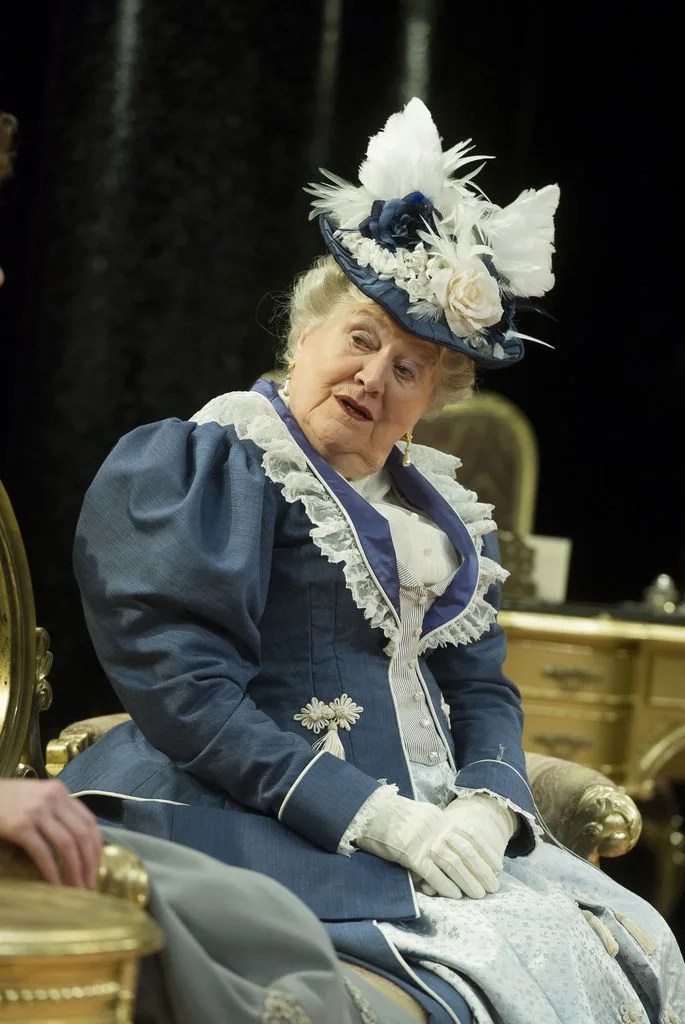
Despite her love for music, Routledge’s calling was to the stage. And it’s been a career marked not by glamour or scandal, but by quiet resilience and relentless excellence. She never fit the mould of the ingénue—“thank God,” she quips. “I was always character.” In a world often obsessed with youthful beauty and connections, she climbed the ladder without either, powered instead by sheer will and talent.
Hyacinth, Hetty, and Talking Heads
Television audiences know her best as the irrepressible Hyacinth Bucket in Keeping Up Appearances, a show that at its height drew 13 million viewers. As Hetty Wainthropp, the cardigan-clad amateur sleuth, she brought a warmth and grit rarely seen in detective dramas. But it’s perhaps her haunting performances in Alan Bennett’s Talking Heads that display the full range of her talent.
Routledge’s turn in Miss Fozzard Finds Her Feet is unforgettable: emotionally raw, subtly kinky, and deeply humane. “Very dark,” she says of the piece. “Very, very dark and kinky—and yet [Bennett] appears to make no moral judgment.”
Like her characters, Routledge contains multitudes.
The Hidden Passions of a Private Woman
While the public sees the perfectionist actress, few know the full story of Routledge’s private life—a life marked by profound love, heartbreak, and a remarkable lack of regret.
In her late twenties, she fell in love for the first time. The man was married. “It took me completely by surprise,” she says, her tone softened by the passing of years. “But it was enriching for both of us. It was a very blessed and beautiful thing.”
She never told her parents. Her mother, who had already passed away, “would have been disappointed,” she admits, and her father “very Victorian.” But the relationship changed her. “I grew up,” she says, eyes fixed on the memory. “I felt guilt, yes, and an acute sense that there had to be loss. But I have no regrets. People you have loved very much are part of you for always.”
Years later came a second, brighter love—this time with a theatre director, unmarried. “It was joyous,” she says, the word luminous with remembrance. “Always laughter.” But tragedy struck before the play opened: her partner died suddenly. Routledge was devastated. “We never possess anything or anybody—that’s a great lesson to learn,” she reflects. “The work had to be done, for him… and in a strange way, although that was painful, it was also comforting.”
Of Faith, Family, and a Life Lived Fully
Routledge has no children. It wasn’t a conscious choice, she says, but rather a consequence of her total devotion to her craft. “I always knew, deep down, that everything has a cost,” she says. “I would have hated to short-change any little soul that I brought into the world.”
And yet, her life has not lacked for love, nor for conviction. She speaks of her upbringing in Birkenhead with reverence—of parents who sacrificed and siblings who inspired. Her brother Graham, a canon of St Paul’s Cathedral, died of cancer twelve years ago. His loss, she says, “hit me very hard.” But her presence at his final breath became a sacred moment. “Very glad I was there,” she whispers.
Her faith remains strong. “I couldn’t do without that religious dimension,” she affirms. Church, she insists, offers a kind of fellowship—“a wonderful nonconformist word”—that no solitary meditation can replace. She quotes Wordsworth to describe modern life’s spiritual emptiness: “Getting and spending, we lay waste our powers.”
Living in the Present, Laughing in the Dark
Though she often reflects on death—“Oh yes, daily, daily”—Routledge has mastered what she calls “the secret of living for the present.” Perhaps that’s why she’s so compelling in both comedy and tragedy. Like all great comic actors, she knows where the shadows lie.
Would she ever return to the tragic stage? “The word ‘peak’ frightens me,” she says, leaning back in her chair. “Maybe a great tragic role… but there’s enough tragedy about. It’s more important to help people laugh.”
Still as sharp and stylish as ever—sipping Earl Grey in a brown cardigan and silk scarf—she smiles with the wisdom of someone who’s seen all the acts of life’s play. And as the clock ticks toward curtain-up, she prepares to slip into another character once more.
“But now,” she says with a twinkle, “if you’ve finished, I need a little sleep before tonight’s performance…”
And with that, Patricia Routledge—Lady Bracknell, Hyacinth Bucket, Miss Fozzard—glides back into her world of imagination, ready once again to hold an audience in the palm of her hand.
Would you like this rewritten article formatted for publication in a magazine layout or blog post?
